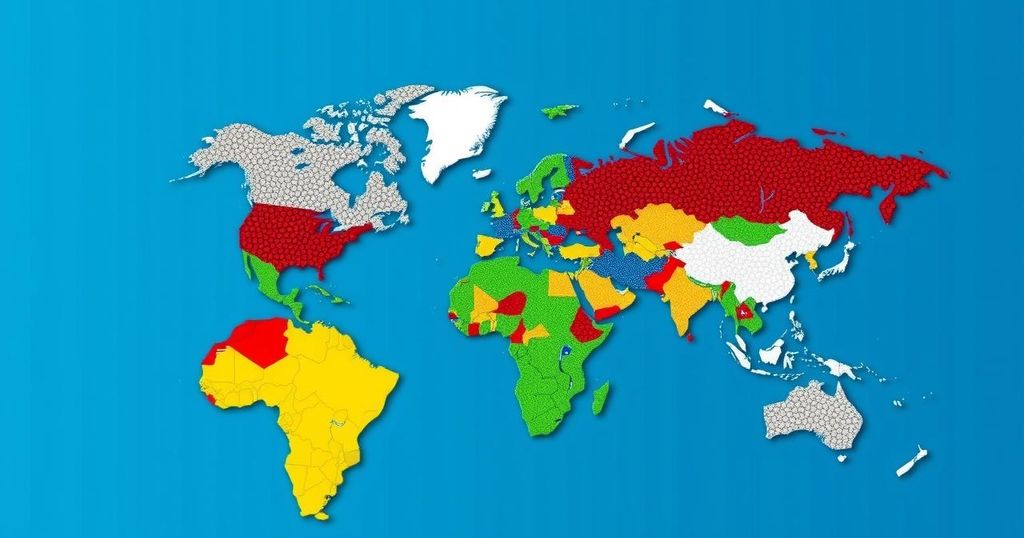At the UN climate conference in Baku, leaders shared their nations’ experiences with the severe impacts of climate change, including flooding and extreme heat. Notable omissions from major carbon polluting countries raised concerns, though the UK announced a significant emissions reduction target. The conference focused on climate finance and support for poorer nations, while discussing the potential of a Fossil Fuel Non-Proliferation Treaty to aid in transitioning to renewable energy.
At the recent United Nations climate conference in Baku, Azerbaijan, numerous world leaders gathered to share experiences regarding the severe impacts of climate change that their respective countries have endured. These leaders included Prime Minister of Pakistan, Shehbaz Sharif, who spoke of the deadly flooding and extreme heat his country has faced in recent years. The Prime Minister of the Bahamas, Philip Edward Davis, highlighted the financial struggles created by catastrophic weather events, for which his nation, among many others in the Global South, bears limited responsibility. Greece’s Prime Minister Kyriakos Mitsotakis recounted the harsh consequences of consecutive heat waves affecting southern Europe, resulting in significant water shortages and ecological distress. Despite notable attendance from various global leaders, many of the largest carbon dioxide-producing nations were absent from COP29, including the leaders of China, the United States, India, and Indonesia. Nevertheless, UK Prime Minister Keir Starmer announced an ambitious plan to reduce emissions by 81% below 1990 levels by 2035, surpassing the previous reduction commitment of 78%. The discussions at the conference primarily centered on climate finance, emphasizing the need for wealthy nations to support poorer countries affected by climate-related disasters and aid in their transition away from fossil fuel dependence. Additionally, the agenda included progress on the Fossil Fuel Non-Proliferation Treaty, which aims to garner international consensus on regulating fossil fuel production to mitigate climate change. Several countries and organizations, including Fiji and the World Health Organization, have endorsed this treaty, recognizing its potential to accelerate the switch to renewable energy and promote sustainable practices globally.
The United Nations climate conferences are pivotal gatherings where world leaders discuss and address the pressing issue of climate change, presenting an opportunity for nations to highlight the real impacts of climate-related disasters. As the effects of climate change continue to escalate, countries are seeking collaborative approaches to support those that suffer most from environmental extremes, especially in the Global South. This particular conference stressed the urgency of financial commitments from developed nations towards adaptation and mitigation efforts.
The recent UN climate conference underscored the urgency accompanying global climate discussions, particularly regarding financial assistance for nations vulnerable to climate change. With significant absences from leading carbon-producing countries and the United Kingdom setting ambitious emission targets, the path towards a collaborative international response remains challenging. However, initiatives such as the Fossil Fuel Non-Proliferation Treaty offer hope for a transition towards sustainable energy practices essential for combating climate change.
Original Source: apnews.com






